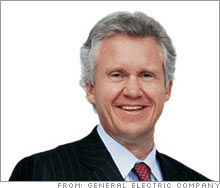Are Americans too lazy?U.S. workers can't compete globally unless they work harder, writes Fortune's Geoff Colvin.(Fortune Magazine) -- We Americans pride ourselves on being a hard-working bunch, so here's a thought to spoil your Labor Day rest: By global standards, we're lazy. We've been getting lazier. And the days of the American dolce vita may be numbered. The surprising report of our relative sloth arrives in new research from the UN's International Labor Organization, which looks at working hours around the world. When it comes to what we might call hard work, meaning the proportion of workers who put in more than 48 hours a week, America is near the bottom of the heap. About 18% of our employed people work that much.
That's a higher proportion than in a few other developed countries like Norway, the Netherlands, and even Japan. But it's actually lower than in Switzerland and Britain, and way lower than in developing countries like Mexico and Thailand. It's drastically lower than in what may be the world's two hardest-working countries, South Korea and Peru, where the proportions are about 50%. It's bad enough to be told we're slackers in the world economy. What many Americans really won't want to believe is separate research showing that we're working much less than we used to. I know, I know -- you're working harder than ever, and so is your spouse. But we're not talking about you; we're talking about the whole country, on average. And I'm afraid the findings are dramatic. We have increased our leisure time enormously over the past 40 years -- so much so that it "corresponds roughly to an additional five to ten weeks of vacation a year," says a study by Mark Aguiar of the Boston Fed and Erik Hurst of the University of Chicago business school, who conducted the study. People with jobs are working fewer hours. Compounding the effect, fewer of us work at all, with growing numbers of people spending more time in retirement. Of course, there's more to work than what we do on the job; there's also the work we do at home, and that too has fallen drastically. (It has fallen on average; men are actually doing a bit more work at home than they used to, but women are doing much less.) Put it all together, and the researchers figure we're getting about 117 hours of leisure per week (including sleep), vs. 110 hours in 1965. That's more than 360 additional idle hours per year. We are a couch-potato nation. You may wonder why I seem to be putting negative spin on these findings. Why should our massively expanded leisure be cause for anything but celebration? After all, we're a much richer country than we were in 1965, and we're enjoying our wealth, just as economic theory would predict. Sweating less and having more is the whole idea. The problem isn't what has happened, unless you figure we've just explained the obesity epidemic, but rather what might happen next. Every day more of us work in a global labor market, competing for jobs with people around the world. One thing markets do really well is fix disequilibriums; when anything tradable sells for different prices in different places, those differences soon disappear. Americans and others in developed economies are selling the world's most expensive labor. In a global market, some of those prices -- our pay -- will have to stop rising and maybe even come down, while pay in China, India, and elsewhere goes up. Economists see it happening already, attributing some of the surprising flatness in Americans' real total compensation of the past few years to the presence of millions of global workers competing for jobs. That's one way that markets equilibrate. Another way may affect how hard we work. It's obvious that if real total pay is going nowhere, we may have to work harder just to improve our living standard. More important, in the growing number of jobs not paid by the hour, people who work harder may just produce better results. General Electric chief Jeff Immelt put it bluntly while recalling a trip to Beijing last year, when he got a big order from the Transport Ministry: "The whole ministry was working all day on a Sunday. I believe in quality of life, work-life balance, all that stuff. But that's the competition. So unless we're willing to compete ..." He has identified the issue. Competing in a global labor market may require us to put in more hours just to stay in the game. As Immelt asks, "Are we willing to compete for the future?" Try to enjoy your Labor Day rest. You'll need it. Tell us what you think? Are Americans a bunch of slackers? |
|


